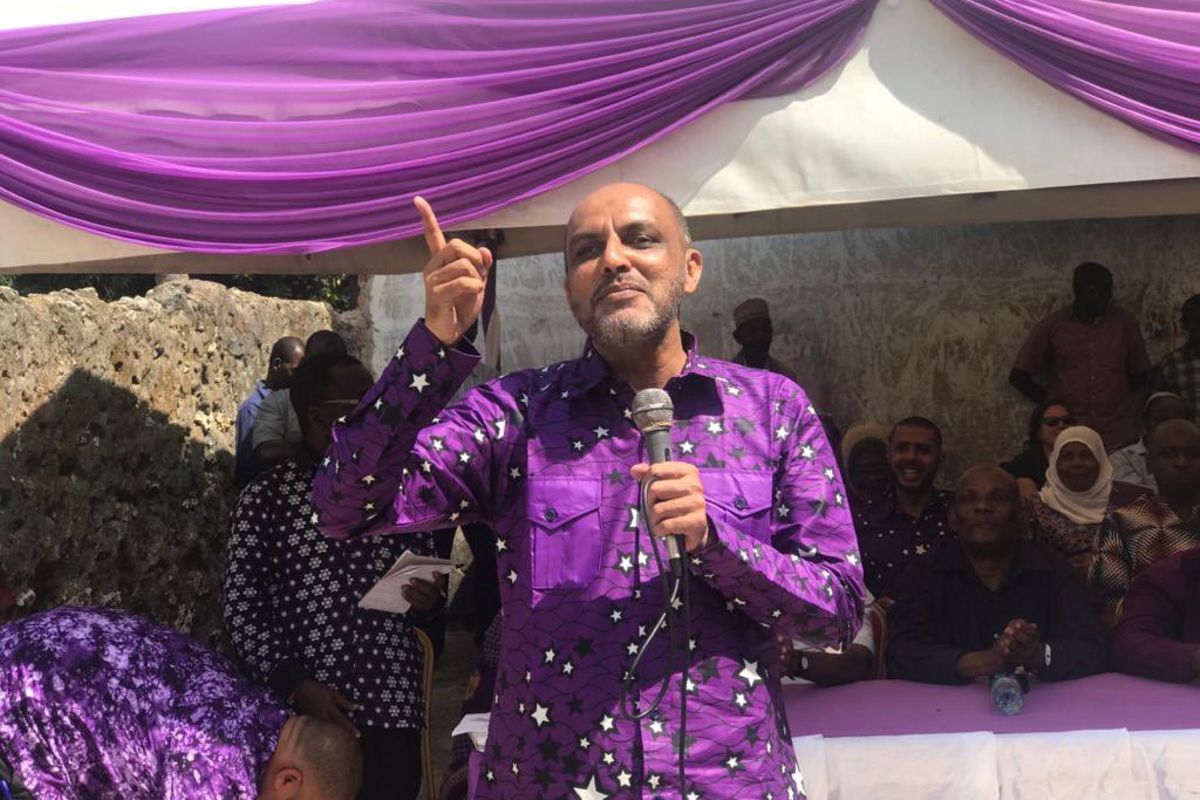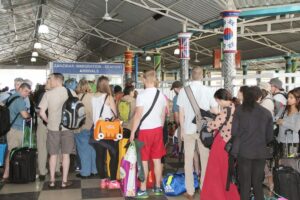Unguja. The opposition party ACT Wazalendo has criticized CCM-Zanzibar’s push to extend President Hussein Mwinyi’s term to seven years, labeling it a sign of panic due to governance failures.
Addressing a rally in Magogoni kwa Mwarabu, party cadre Mansoor Yusuf Himid emphasized that the true test of CCM’s achievements in the past three years should be left to the electorate.
“If you believe you have performed well, why fear elections? The constitution mandates elections every five years. Only at the polls will we provide the verdict on your governance,” Mr. Himid asserted.
He continued, “They should abandon this dream of seven years because it will never come to fruition.”
Supporting these sentiments, the party’s Vice-chairman in Zanzibar, Ismail Jussa Ladhu, criticized CCM’s statements advocating for an extended presidential term, arguing it undermines democratic principles.
The debate was sparked by Dr Mohamed Said Dimwa, Deputy Secretary General of CCM-Zanzibar, who recently announced that the Special Committee of CCM’s National Executive Committee endorsed a proposal to extend President Mwinyi’s tenure to seven years.
Dimwa cited the president’s effective implementation of the CCM Manifesto for 2020-2025, achieving over 100 percent of set targets within three years and a few months of taking office.
Speaking at the same rally, party chairman Othman Masoud Othman expressed concern over the Revolutionary Government’s budget, which heavily relies on foreign loans, amounting to 65 percent.
He recalled the leadership of Zanzibar’s founding father, President Abeid Karume, who built residential homes using solely domestic resources, without borrowing from abroad.
Othman highlighted that out of the total budget of the Revolutionary Government of Zanzibar (SMZ) amounting to Sh5.182 trillion, Sh3.5 trillion comes from donor funds, while Sh1.5 trillion is generated domestically.
In concluding remarks on the government’s main budget debate on June 20, 2024, the Finance Minister expressed pride in the budget, citing successful implementation of numerous developmental projects.
“Some want us to celebrate this budget and the achievements it reflects, but tell that to those unaware. For those who understand, we have moved away from self-reliance. Why then are we struggling today, resorting to borrowing when we had already overcome such challenges?” Othman queried.
Reflecting on past successes, Othman noted that in 1971, Zanzibar earned Sh16 million from selling 3,200 tons of cloves, which funded the construction of 403 homes in Kilimani. Furthermore, the sale of 61,200 tons of cloves (equivalent to current Sh1.3 trillion) built 1,300 homes.
Othman, who served as Deputy and Attorney General of SMZ for over a decade, highlighted President Karume’s ambition to construct 17,000 homes for Sh400 million.
“This country was once self-sufficient in all aspects and supported Mainland Tanzania. That’s the truth, and we are capable,” he said, giving the example of Mauritius, an Indian Ocean island nation, which is economically more advanced than Zanzibar.
Othman lamented, “It’s disheartening that despite our potential to excel, we are borrowing Sh3.5 trillion, with 35 percent of it being our own funds. How can anyone be content with this? We should strive to surpass others, not lag behind.”
He criticized the current state of affairs in Zanzibar, attributing it to poor leadership.
Othman highlighted that out of the Sh1.5 trillion raised domestically, Sh900 billion is allocated to wages. “No government can function effectively on Sh600 billion, especially when Sh300 billion is already earmarked for loan repayments. Even a municipality would struggle with Sh300 billion.”















